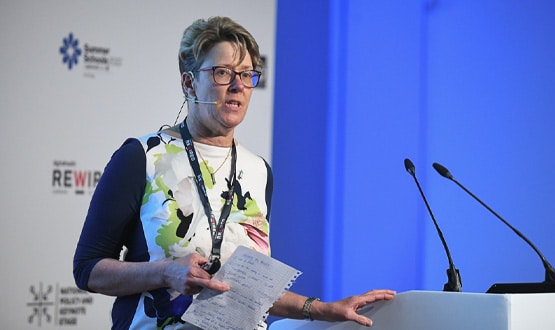NHS 111 goes online
- 29 May 2015

NHS England is testing an online version of non-emergency phone service NHS 111 that uses a simplified version of the algorithm used by call handlers.
Despite a recent call by GP leaders for the service to be scrapped, NHS 111 national programme director Rob Bacon told a NHS 111 Focus on Futures audience in Manchester yesterday that it “has a long term future”.
The online tool is being developed in collaboration with technology consultancy firm Valtech and is currently in alpha testing in Sandwell and West Birmingham Clinical Commissioning Group.
The ultimate aim is for the service to be available via the NHS Choices website. This is part of a move to improve the integration of NHS 111 and NHS Choices, as outlined in the Personalised Health and Care Framework 2020.
NHS England’s director of digital technology Beverly Bryant, who was speaking at the event, explained that as part of this process, the NHS is moving towards referring to NHS Choices as NHS.UK.
“We need to be that platform of usability,” she said, stating that the aim was to give patients full access to local NHS 111 services through a single digital platform.
Deborah El-Sayed, head of multi-channel development for NHS 111, told Digital Health News that NHS.UK, or NHS Choices, will serve as a platform for whatever tools are developed for the service.
“From a user perspective what that means is they are agnostic. They go to one place that they recognise. NHS Choices currently gets 1.4 million unique users a day and that’s a significant number of people,” she said.
Last week, Local Medical Committee members voted overwhelmingly in favour of a motion to scrap the phone service, saying that the use of non-clinical call handlers has led to a risk-averse triage system that means more referrals to GPs and A&E.
However, Bacon brushed off these claims saying the service, “will play a significant part in reform of urgent and emergency care service”.
“NHS 111, despite some of the messages we heard last week, has a long term future,” he added.
Delegates at the Manchester event were yesterday given a demonstration by project lead Tony Yates on how the tool might work for people experiencing a headache.
When a member of the public starts to use the system they are presented with an upfront disclaimer that tells them the circumstances in which they need to phone 999.
If this service is not required, the user is then asked to type in their basic symptoms and are asked a series of questions based on their answers.
Depending on the responses, the tools then recommends a next step, such as phoning an ambulance, making a GP appointment or to take a self-care approach.
Yates explained that the service is very much a work in progress and more testing is necessary in a localised setting before expanding the service, which aims to work with 800 care pathways.
He added that beta testing for invited users was scheduled for December of this year when 80% of pathways are expected to be available.
“This is an alternative to the telephone service, not a replacement,” he said.
A spokesperson for Valtech told Digital Health News that once the system is ready to be rolled out, it will likely be up to local NHS organisations to promote its use to the public.
He added that Sandwell and West Birmingham CCG has been using the tool in waiting rooms so that patients can work out the care they require.



